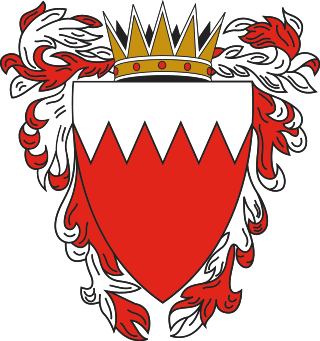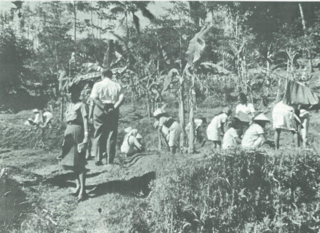Related Research Articles

After independence in 1964 the foreign relations of Zambia were mostly focused on supporting liberation movements in other countries in Southern Africa, such as the African National Congress and SWAPO. During the Cold War Zambia was a member of the Non-Aligned Movement.

Freedom House is a non-profit organization based in Washington, D.C. It is best known for political advocacy surrounding issues of democracy, political freedom, and human rights. Freedom House was founded in October 1941, with Wendell Willkie and Eleanor Roosevelt serving as its first honorary chairpersons. Its mission is to expand and defend freedom globally, and its vision is a world where all are free. Most of the organization's funding comes from the U.S. State Department and other government grants. It also receives funds from various semi-public and private foundations, as well as individual contributions.
The human rights record of North Korea has been globally condemned, with the United Nations, and groups such as Human Rights Watch all critical of it. Some international human rights organizations consider North Korea to have no contemporary parallel with respect to violations of liberty.
Human rights in Indonesia are defined by the 1945 Constitution and the laws under it; several rights are guaranteed especially as a result of the constitutional amendments following the Reform era. The Ministry of Law and Human Rights deals with human rights issues in the cabinet, and the National Commission on Human Rights, established in Suharto's New Order administration in 1993, is the country's national human rights institution.

International organizations have frequently alleged that Azerbaijan has violated human rights standards established in international law.
The topic of human rights in Asia is one that encompasses an immense number of states, international governmental organizations, and non-governmental organizations. All these institutions contribute a variety of services and perspectives towards human rights, covering topics including the enforcement, monitoring, and criticisms of human rights in Asia. There is no single body that covers all of human rights in Asia, as such a diverse and widespread region requires a number of institutions to properly monitor the multitude of elements that fall under the scope of human rights. There have historically been numerous criticisms of human rights in Asia, but a variety of new treaties and conventions now strive to accomplish a level of human rights as they are known on the international stage. Human rights in Asia are monitored by many organizations, a few examples being the ASEAN Intergovernmental Commission on Human Rights (AICHR) and Human Rights Watch. Tolerance of these organizations varies from state to state, with voluntary intergovernmental programs often seeing more state-cooperation than neutral non-governmental organizations would typically receive. The number of criticisms towards Asian states has dramatically increased in recent decades, with many human rights advocates calling for increased transparency and greater international pressure upon Asian states to refrain from any human rights infractions. Aforementioned calls for international pressure have gone unanswered, however, as most of the international community finds it increasingly difficult to challenge the actions of the growing Asian powers: particularly China. While states have put forward somewhat muted complaints in recent years, non-governmental organizations continue to 'name and shame' states that have shown themselves to be guilty of human rights infractions.

The Moscow Helsinki Group was one of Russia's leading human rights organisations. It was originally set up in 1976 to monitor Soviet compliance with the Helsinki Accords and to report to the West on Soviet human rights abuses. It had been forced out of existence in the early 1980s, but was revived in 1989 and continued to operate in Russia.

Bahrain's record on human rights has been described by Human Rights Watch as "dismal", and having "deteriorated sharply in the latter half of 2010". Their subsequent report in 2020 noted that the human rights situation in the country had not improved.

Carmel Budiardjo was an English human rights activist, lecturer, and author. She was the founder of the non-governmental organisation Tapol. Budiardjo was known for campaigning for the awareness of war crimes and human rights abuses in Indonesia and East Timor. For her activism, she was awarded the Right Livelihood Award in 1995.
Colombia is a sovereign state situated in South America. It has been a member of the United Nations since 5 November 1945, and is party to a variety of international agreements concerning human rights. It also has a series of domestic laws concerning the protection of human rights. However, Colombia's human rights record often contradicts directly with the laws and agreements to which it is bound; Colombia was referred to as the country with the "worst human rights record in the western hemisphere," by HRW in 2007. The same was said of Guatemala in 1998, as well as Cuba in 2012 and Venezuela today. In the UK Foreign Office annual human rights report for 2010, Colombia features as one of 20 "Countries of Concern".

The Indonesian occupation of East Timor began in December 1975 and lasted until October 1999. After centuries of Portuguese colonial rule in East Timor, the 1974 Carnation Revolution in Portugal led to the decolonisation of its former colonies, creating instability in East Timor and leaving its future uncertain. After a small-scale civil war, the pro-independence Fretilin declared victory in the capital city of Dili and declared an independent East Timor on 28 November 1975.

Concerns about human rights in Chile include discrimination against indigenous populations; societal violence and discrimination against women, children, and lesbian, gay, bisexual, and transgender (LGBT) people; child labor; and harsh prison conditions and treatment. Additional human rights concerns in the country include use of excessive force and abuse by security forces, isolated reports of government corruption, and anti-Semitism. Authorities generally maintain effective control over the security forces. However, security forces occasionally commit human rights abuses. The government generally takes steps to prosecute officials who commit abuses. Nevertheless, many human rights organizations contend that security officials accused of committing abuses have impunity.

The Egyptian Organization for Human Rights (EOHR), founded in April 1985 and with its headquarters in Cairo, Egypt, is a non-profit NGO and one of the longest-standing bodies for the defense of human rights in Egypt. It investigates, monitors, and reports on human rights violations and defends people's rights regardless of the identity, gender or color of the victim. EOHR faces any human rights violations made either by governmental or non-governmental parties. It is registered with the United Nations and works with other human rights groups.

Kronid Arkadyevich Lyubarsky was a Russian journalist, dissident, human rights activist and political prisoner.
NGO Monitor is a right-wing non-governmental organization based in Jerusalem that reports on international NGO activity from a pro-Israel perspective.

The East Timor genocide refers to the "pacification campaigns" of state terrorism which were waged by the Indonesian New Order government during the Indonesian invasion and occupation of East Timor. The majority of sources consider the Indonesian killings in East Timor to constitute genocide, while other scholars disagree on certain aspects of the definition.

The Employees' Corps of the Republic of Indonesia, also known as the Indonesian Civil Servants Corps, is a state-regulated organisation of civil service employees.
Events of 2021 in England

Plantungan concentration camp was an internment camp for female political prisoners in New Order Indonesia. These prisoners, which numbered about 500 in total, were mostly members of the banned Communist Party of Indonesia, of affiliate organizations like LEKRA, Gerwani, or other leftist organizations, and were mostly "Category B" prisoners who by official admission had no evidence or charges against them. It was located in Kendal Regency near Semarang, Central Java and operated from 1971 to 1979. Among the high-profile detainees at Plantungan were Umi Sardjono, Salawati Daud, Mia Bustam, Dr. Sumiyarsi Siwirini, a left-wing activist, and Siti Suratih, wife of high-ranking Communist Party leader Oloan Hutapea.

Sumiyarsi Siwirini, whose name was sometimes spelled Sumiarsih, was an Indonesian doctor, writer, activist, and political prisoner. She was imprisoned in the Plantungan concentration camp by the Indonesian government during the 1970s, where she became well-known for running a medical clinic staffed by fellow prisoners; in the anticommunist propaganda of the Indonesian military she was portrayed as the "doctor of Lubang Buaya."
References
- ↑ British woman narrates account of prison torture Archived 21 June 2015 at the Wayback Machine , The Jakarta Post , 12 September 1999
- ↑ Tapol (Organization); British Campaign for the Defence of Political Prisoners and Human Rights in Indonesia (1973), Tapol bulletin (PDF), TAPOL, ISSN 1356-1154
- ↑ Tapol (Organization) (1990), TAPOL--British campaign for the defense of political prisoners and human rights in Indonesia, United Kingdom, IDC, retrieved 26 February 2012
- ↑ Tapol (Organization) (1978), Buru, TAPOL, retrieved 26 February 2012
- ↑ Tapol (Organization) (1978), Treatment of Indonesian political prisoners : forced labour and transmigration, Tapol, retrieved 26 February 2012
- ↑ Tapol (Organization) (1987), Indonesia : Muslims on trial, Tapol, ISBN 978-0-9506751-4-5
- ↑ A Fragment of a Story: Gerwani and Tapol Experiences, Intersections: Anne Pohlman, Gender, History and Culture in the Asian Context, Issue 10, August 2004
- ↑ Tapol financial report for 2013